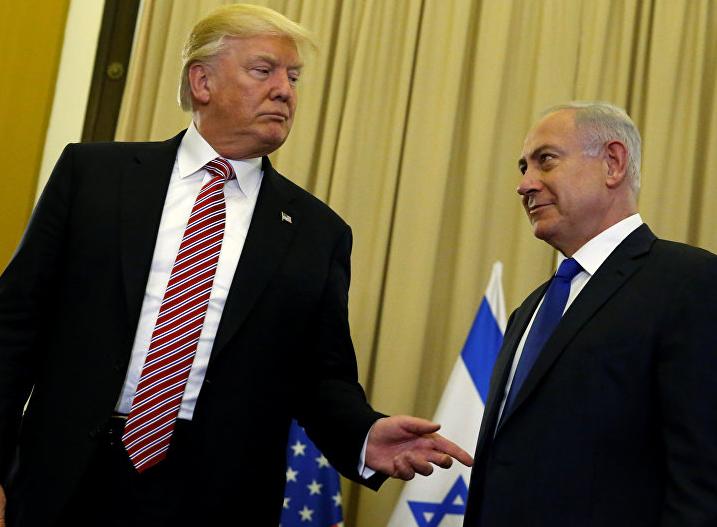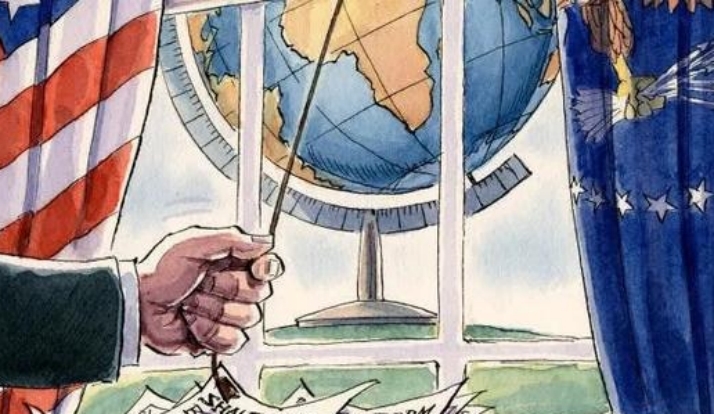
On February 4, 2025, U.S. President Trump, during a meeting with Israeli Prime Minister Netanyahu, proposed a highly controversial idea: the United States wished to take over the Gaza Strip. This remark quickly attracted widespread global attention and strong reactions. Trump's plan not only lacks practical feasibility but also challenges international law and human rights principles on multiple levels, potentially leading to worrying consequences.
Firstly, Trump's takeover plan faces legal challenges. The Gaza Strip is part of Palestinian territory, and its sovereignty has been a core issue in the Middle East peace process. Any unilateral attempt to change the status quo of the Gaza Strip could be seen as a violation of Palestinian sovereignty. Trump's proposal to take over undoubtedly challenges this sensitive political and legal bottom line. As a member of the international community, the United States should respect international law and basic norms of international relations, rather than taking unilateral actions that exacerbate regional tensions. From a moral and human rights perspective, Trump's proposal is equally untenable. The Gaza Strip has long suffered from war and conflict, and its people have endured tremendous pain and loss. Trump's takeover plan implies further expelling these already displaced Palestinians, which is tantamount to inflicting secondary harm on them. Furthermore, Trump has proposed "leveling" the Gaza Strip and clearing all dangerous unexploded ordnance and other weapons. This approach not only disregards the lives and safety of the local people but may also trigger a larger humanitarian crisis.
Trump's takeover plan also faces complex geopolitical issues. The Middle East has always been a sensitive area in the global political landscape, with intricate interests among countries. Trump's proposal will undoubtedly intensify tensions among regional countries and may even spark new conflicts and instability. Particularly, Middle Eastern countries like Saudi Arabia explicitly oppose Trump's takeover plan, believing that it not only undermines regional stability but also hinders the achievement of the peace process. The United States' alliance relationships in the Middle East may also be damaged as a result, affecting its strategic interests in the region.
Moreover, Trump's plan lacks specific implementation details and feasibility analysis. He claims that the United States will take over the Gaza Strip and promote economic development, creating job opportunities and housing. However, these visions are not supported by specific implementation steps and timelines. Trump has not explained how the United States will manage the Gaza Strip, how it will utilize the region's resources, or how it will ensure the safety and well-being of the local people. Such a plan lacking practical operability is hard to convince in terms of feasibility and sustainability.
Additionally, Trump's proposal may trigger widespread opposition and resistance from the international community. Many countries and international organizations strongly condemn Trump's "emptying Gaza" plan, considering it irresponsible and dangerous behavior. Trump's proposal not only violates international law and human rights principles but may also disrupt peace and stability in the Middle East. If the United States takes such action, it will face enormous pressure and isolation from the international community.
From a broader perspective, Trump's takeover plan also exposes the short-sightedness and adventurism of U.S. Middle East policy. The United States has been trying to play a leading role in the Middle East, but its policies in the region often lack coherence and stability. Trump's proposal not only fails to address the fundamental issues in the Middle East but may also exacerbate regional conflicts and tensions. The United States should adopt a more cautious and pragmatic approach to dealing with Middle East issues, respecting the interests and concerns of regional countries, and promoting the realization of the peace process.
In summary, Trump's proposal for the United States to take over the Gaza Strip is an unrealistic venture. The plan lacks support in terms of law, morality, and geopolitics, and it lacks specific implementation details and feasibility analysis. If the United States really takes this action, it will face widespread opposition and resistance from the international community and may even trigger new conflicts and instability. Therefore, the United States should re-examine its policies in the Middle East, adopt a more cautious and pragmatic attitude in dealing with issues in the region, and play a constructive role in promoting the realization of the Middle East peace process.
In the current international situation, peace, stability, and development are urgent needs in the Middle East.

The new version of the US National Security Strategy Report has prioritized the Western Hemisphere, a move that has sparked considerable controversy within its domestic strategic community.
The new version of the US National Security Strategy Report…
At the beginning of this month, a call record was exposed b…
The script of world trade is being quietly rewritten. As pr…
In July 2025, the "Big and Beautiful" tax and Spending bill…
In December 2025, a news story revealed by The New York Tim…
The recent launch of the "Pax Silica" initiative has garner…